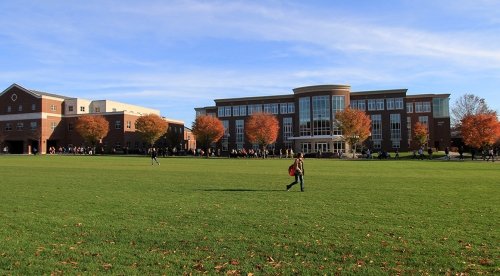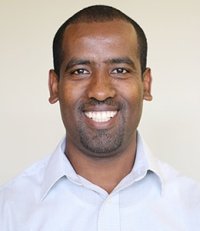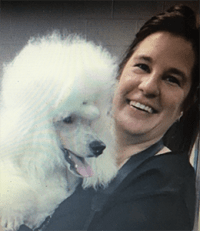Economics and Finance

- Contact Information
-
- 570-389-4341
- 570-389-4338 (fax)
- Send an Email
-
228 Sutliff Hall
- Social Media
Our economics department offers three tracks — economics, business economics, and political economics — to master principles of economics, develop analytical skills, and interpret economic phenomena.
The diverse curriculum is taught by faculty holding doctorate degrees from various prestigious institutions who are active in diverse research areas and committed to providing attention to individual student's needs and preparing them for careers in finance, banking, and the corporate world, government and non-government organizations — as well as for further graduate study and research.
We have faculty members working on research in career relevant areas, like economic development, environmental and resource economics, labor economics, health economics, and sports economics.
We offer a systematic study of the economic issues and prepare students for a wide range of career opportunities in for profit and non-profit organizations, as well as government. The core of the curriculum enables the students to master principles of economics, develop analytical skills, and interpret economic phenomena.
Concentrations
ECONOMIC 121 [Principles of Macroeconomics 3 Credits] — This course provides students with an introduction to the basic Macroeconomic principles. It surveys several key topics in macroeconomics, including the nature of economic problems, basic principles of economics, the institutional framework of our economy; supply-demand and the price mechanism; measurement of national income and the determination of inflation and unemployment levels; consumption, saving and investment behavior of economic actors, short-run economic fluctuations; monetary and fiscal institutions and theories, and long-run economic growth. This course earns three GEPs toward Goal 6 Social Sciences in general education.
Prerequisites: None
ECONOMIC 122 [Principles of Microeconomics 3 Credits] — This course introduces the economic analysis of individual, business and industry choices in the market economy. Topics include the price mechanism, demand and supply, elasticity, cost and productions analysis, theory of consumer behavior and the firm; output and price determination, resource allocation and determination of factor incomes under perfect and imperfect markets, and current economic issues. This course earns three GEPs toward Goal 6 Social Sciences in general education.
Prerequisites: None
ECONOMIC 150 [Introduction to Health Economics 3 Credits] — Introduces students to basic principles of economics and its application to health care policy issues. This course will provide registered nurses the foundational knowledge of economics to help them better understand the policies that shape health reform and the implications for patients, nurses, practitioners, and health care. The course is typically offered once a year.
ECONOMIC 156 [Business and Economic Mathematics (3 Credits)] — Presents an introduction to basic mathematical tools most frequently employed in Business and Economics, e.g., systems of linear equations, inequalities, logarithms, and mathematics of finance; and prepares students for the concepts of optimization. This course earns three GEPs toward Goal 3 Quantitative Reasoning in general education. This course is an approved Foundational Course.
Prerequisites: None
ECONOMIC 221 [Intermediate Macroeconomic Theory (3 Credits)] — Stresses the national income analysis; theory of income determination, employment and price levels; monetary and fiscal institutions; theory and policy; investment, interest rate and demand for money; business cycles; inflation and unemployment; national debt; macroeconomic equilibrium; prices, wages, aggregate demand and supply, economic growth, foreign trade and balance of payments; economic policy.
Prerequisites: ECONOMIC 121, ECONOMIC 122 and ECONOMIC 156.
ECONOMIC 222 [Intermediate Micro-Theory and Managerial Economics (3Credits)] — Reviews the theory of consumer behavior and the firm; output and price determination under different market systems; perfect competition, monopoly, oligopoly and monopolistic competition; production and cost analysis; allocation of resource and distribution of income; comparison of behaviors of competitive, monopolistic and oligopolistic product and resource markets.
Prerequisites: ECONOMIC 121, ECONOMIC 122 and ECONOMIC 156.
ECONOMIC 256 [Business and Economics Statistics I (3 Credits)] — Studies the Organization and presentation of data, descriptive statistics, elements of probability and probability distributions, sampling and sampling distributions, estimation and hypothesis testing, and correlation as applied to business and economic data. This course earns three GEPs toward Goal 3 Quantitative Reasoning in general education.
Prerequisites: ECONOMIC 121 or ECONOMIC 122.
ECONOMIC 313 [Labor Economics (3 Credits)] — Presents the economics of the labor market, the supply of and demand for labor, the nature of theory and wages, productivity and inflation, unionism, theories of the labor movement, collective bargaining and public policy. A major focus is the relationship between labor markets and gender and racial issues. For each of the economic issues, the implications with respect to gender and race will be examined. The economic analysis and empirical data presented in the course will emphasize Labor Market differences by race, gender and international comparisons. This course earns two GEPs toward Goal 4 Cultures and Diversity in general education.
Prerequisites: ECONOMIC 121 and ECONOMIC 122.
ECONOMIC 316 [Urban Economics (3 Credits)] — This course introduce students to how the economic theory can be used to understand the location decisions of utility-maximizing households and profit-maximizing firms and how these decisions cause the formation of cities of different size and shape. Topics include why cities exists and what causes them to grow or shrink, the market forces that shape cities, the role of government in determining land use patterns, the urban transportation system, the cause of urban crime, the housing market and the effects of government housing policies.
Prerequisites: ECONOMIC 121 and ECONOMIC 122.
ECONOMIC 322 [Contrasting Economics (3 Credits)] — Outlines theories of capitalism and socialism with a special emphasis on Marxian theory. Compares theoretical and actual performance of capitalism, socialism and communism.
Prerequisites: ECONOMIC 121 and ECONOMIC 122.
ECONOMIC 327 [Money and Banking (3 Credits)] — Reviews the historical background and the development of monetary practices and principles of banking; special attention given to commercial banking and credit regulations and current monetary and banking development. The various topics covered include financial systems, interest rate determination, structure and regulation of banking industry, central banks, money supply, monetary policy, and the effect of money on output, employment, and inflation.
Prerequisites: ECONOMIC 121 and ECONOMIC 122.
ECONOMIC 329 [Environmental Economics (3 Credits)] — This course introduce students to how the economic theory can be used to understand the behavioral sources of environmental problems and how market and non-market solutions can be used to address these problems. Topics include the private market and its efficiency, externalities, environmental quality as a public good, water resources and water quality, problem of air quality, supply, consumption and pricing of natural resources, the role that exhaustible natural resources have in economic development and other environmental problems. Emphasis is placed on the development of models for the efficient and sustainable use of these resources and on the design of appropriate government policies in the event of market failure.
Prerequisites: ECONOMIC 121 and ECONOMIC 122.
ECONOMIC 333 [International Economics (3 Credits)] — This course introduces students to theory of international trade. It covers various topics in international economics such as why countries trade, gains from trade, absolute advantage, comparative advantage, the welfare effects of free trade and protectionism, national income accounting, the balance of payments, determination of exchange rate, and capital flows (foreign direct investment, remittances and foreign aid).
Prerequisites: ECONOMIC 121 and ECONOMIC 122.
ECONOMIC 334 [Economic Development (3 Credits)] — Presents studies of developing economies; theories of underdevelopment; operative resistances to economic growth; the role of capital, labor, population growth and technological advance; development planning and trade in development settings. The course familiarizes students with the theories of economic development and growth, the role of industrialization and technology, effects of internal and external resource allocation, and inflation. It analyzes problems of development experienced by developing countries in the post-World War II era.
Prerequisite: ECONOMIC 121 and ECONOMIC 122.
ECONOMIC 340 [Economics of the Middle East (3 Credits)] — Analyzes patterns of economic and institutional development in the Middle East; assesses the general trends in economic growth, investment, and institutional changes; and examines specific issues such as population and human development, economics and politics of oil and trade, the structure of state and its role in economic development, financial markets and Islamic banking, and business environment.
Prerequisites: ECONOMIC 121 and ECONOMIC 122.
ECONOMIC 356 [Business and Economic Statistics II (3 Credits)] — Presents studies of probability distributions; hypothesis testing; regression and correlation analysis; analysis of variance; designs of experiments and computer applications.
Prerequisites: ECONOMIC 121, ECONOMIC 122 and ECONOMIC 256.
ECONOMIC 380 [Health Economics 3 Credits] — Catalog Description: Introduces students to the economics of health and health care. Health Economics is a growing field and is an important aspect of public policy in both developed and developing countries. It involves applying both micro and macro-economic concepts to analyze the efficiency and effectiveness of the production and delivery of services in the health sector industries. Students will learn about various health market related topics, such as government intervention in health care, monopolistic structure of the market, asymmetry of information, and presence of externalities. The course will also engage students in discussions about recent health policies both in the U.S and around the globe. Prerequisites for the course include ECONOMIC 121 and ECONOMIC 122 or by permission of instructor.
ECONOMIC 390 [Sports Economics 3 Credits] — Introduces students to the economic issues relevant to the sports industry, including analysis of labor markets, industrial organization, and public finance. Relying on economic principles and models, the course analyzes a variety of issues facing the sports industry such as competitive balance, public financing of stadiums, and discrimination. The target audience for the course includes advanced economics and business students and students from other disciplines interested in working in the sports industry. This course may be taught in a face-to-face, distance education, or blended format, and relies on lecture, class discussion, and guest speakers from the industry for the delivery of class materials. This course satisfies the requirements of an elective course for all tracks of the economics major and minor. Prerequisites for the course include ECONOMIC 121 and ECONOMIC 122 or by permission of instructor.
ECONOMIC 456 [Introduction to Econometrics (3 Credits)] — This course introduce students to the fundamentals of econometrics—the science and art of using economic theory and statistical techniques to analyze economic data. The emphasis of this course is on the practical use of basic econometric techniques for economic analysis. Students will learn how to use statistical methods to estimate relationship between economic variables and conduct various tests. The course is designed to provide students with skills and techniques needed to conduct an applied economic research using econometric software.
Prerequisites: ECONOMIC 121, ECONOMIC 122 and ECONOMIC 256.
ECONOMIC 460 [Advanced Political Economy (3 Credits)] — Reviews the theories of political economy, current issues in political economy, public policy, inequality and environment. Applies economic and political models of social decision making to historical problems from local through international levels. Presents an evaluation of market; political and mixed techniques in particular areas from the 18th through the 20th centuries. Explores the relationship between theories and the real world political and economic perspectives using case studies of selected countries.
Prerequisites: ECONOMIC 121 and ECONOMIC 122.
ECONOMIC 470 [Senior Seminar (3 Credits)] — Discusses the current literature on economic theory and economic policy. Students read one journal article a week on which they write a report and make a seminar presentation.
Prerequisites: Senior standing or consent of the instructor.
ECONOMIC 490 [Independent Study in Economics (1-3 Credits)] — Provides students with an opportunity to receive individualized instruction as they pursue in-depth inquiries into previously specified subject matter of special interest within the field of economics. Topic and outline must be developed with a faculty sponsor and approved by the department during the preceding semester of residence.
ECONOMIC 497 [Economics Internship (3-6 Credits)] — Allows students to apply economic knowledge and analytical skills learned in the classroom to the real world problems in the workplace. Prerequisites: Must be a junior or a senior, have completed ECONOMIC 221 Intermediate Macroeconomic Theory and ECONOMIC 222 Intermediate Micro Theory and Managerial Economics and have the consent of the department chairperson and the supervising faculty.
Prerequisites: ECONOMIC 121 and ECONOMIC 122.
Our faculty emphasize high quality teaching while maintaining an active research agenda and staying up-to-date with the latest developments in the field. General education requirements are designed to give students a well-rounded education and are consistent across all majors at Bloomsburg.
General Education Requirements
- Communication (7 GEPs) – Must come from at least 3 disciplines
- Information Literacy (2 GEPs)
- Analytical and Quantitative Skills – Must come from at least 2 disciplines, ECONOMIC 156 and 256 each give 3 GEPs in this area
- Cultures and Diversity (5 GEPs) – Must come from at least 2 disciplines, ECONOMIC 313 gives 2 GEPs in this area
- Natural Sciences (5 GEPs) – Must come from at least 2 disciplines
- Social Sciences (5 GEPs) – Must come from at least 2 disciplines, ECONOMIC 121 and 122 each give 3 GEPs in this area
- Arts and Humanities (5 GEPs) – Must come from at least 2 disciplines
- Second Language (2 GEPs)
- Healthy Living (2 GEPs)
- Citizenship (2 GEPs)
Major Requirements
1- Core Courses
- ECONOMIC 121
- ECONOMIC 122
- ECONOMIC 221
- ECONOMIC 222
- ECONOMIC 256
General Economics Track
2 – Electives in Economics
- ECONOMIC 456 6 additional electives at 200-level or higher
3 – Math Requirement
- ECONOMIC 156 or MATH 123 or MATH 125
Business Economics Track
2 – Electives in Economics
- ECONOMIC 456 3 additional electives at 200-level or higher
3 – Required Courses in Business (Track 1 or 2)
- Track 1 – ACCT 221 ACCT 222 ACCT 223 or 348 FINANCE 313
- Track 2 – ACCT 220 ACCT 223 or 348 FINANCE 313 MARKETING 310
Political Economics Track
2 – Political Economics Core Classes
- ECONOMIC 315 or 326 ECONOMIC 322 or 460
3 – Political Science Core Requirements
- POLISCI 120 POLISCI 336
4 – Economics Electives
- 2 additional electives at the 200-level or higher
5 – Political Science Electives
- 2 additional electives
Minor Requirements
1 – Core Courses
- ECONOMIC 121
- ECONOMIC 122
- ECONOMIC 221
- ECONOMIC 222
2 – Electives in Economics
- 2 additional courses in economics at the 200 level or higher








